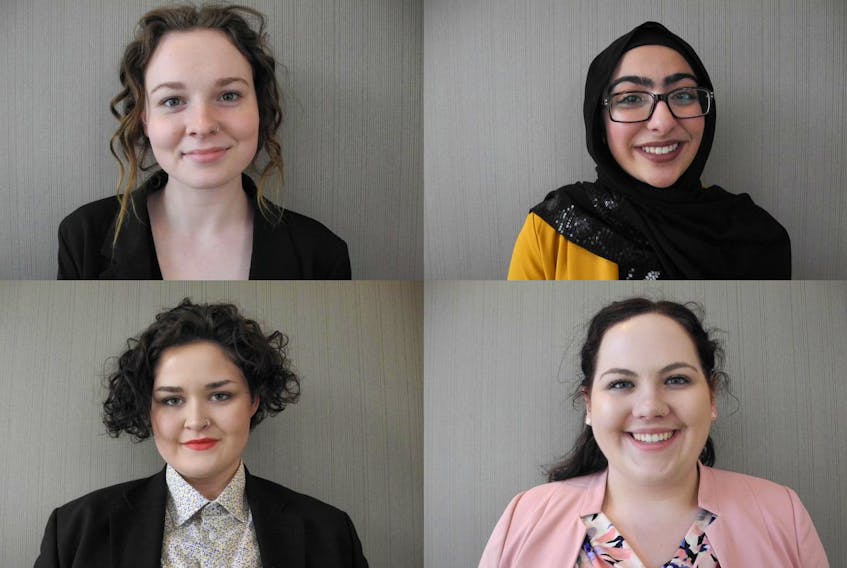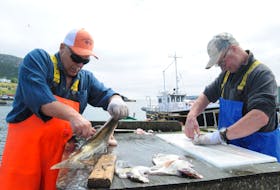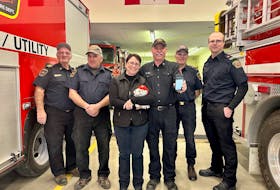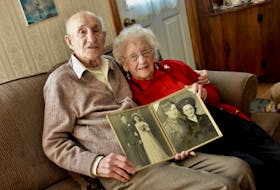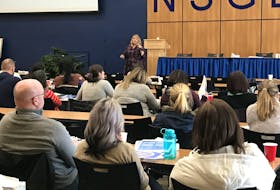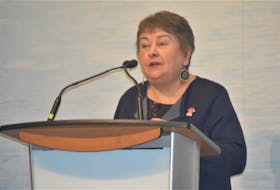Three-hundred and thirty-eight woman aged 18 to 23 — one from each federal riding — were selected to represent their community and attend a week of meetings, workshops and political engagement in Ottawa this week as part Equal Voice Canada’s Daughters of the Vote biannual summit, sharing their vision for a better Canada and learning from one another. SaltWire Network caught up with some of these emerging leaders to chat about some of the key challenges holding back women in leadership and what society can do to break down some of these barriers. Answers have been edited for clarity and length.

Fatima Beydoun
From Halifax, NS
Representing the riding of Halifax
Second-year student at Dalhousie University, pursuing a double major in environment, sustainability and society and international development studies. Dalhousie Student Union Arts and Social Sciences Faculty Representative
Tone policing is a big issue for women in leadership. I find there’s sort of a double standard that women face where, if you say something, it’s seen as subjective, and it cannot be objective because we’re seen as too emotional. For example, if I’m talking about something I’m personally passionate about, when it comes from a woman, because of the patriarchy, it’s seen as less valid, whereas if it came from a man it wouldn’t usually be perceived in the same way.
We need to change the dialogue and what we choose to show people from a young age, not framing woman as bossy but using more empowering language. I also think working from an anti-oppressive framework in all settings, making it not be the elephant in the room and acknowledging it, saying “these systems of oppression exist, let’s keep that in mind and actively try to dismantle and unravel our perceived biases towards what we think it means to be a woman.”

Olivia Corrigan
From Charlottetown, P.E.I.
Representing riding of Miramichi-Grand Lake
Second-year psychology student at Mount Allison University
The women that we see in politics right now are often cisgender straight white women, and I think it’s this homogenized idea of what women face in politics, and understanding that queer women, trans women, Indigenous women and all other women have different experiences and that their voices are often silenced because they are a minority in the country.
That’s why I’m especially passionate about electoral reform, myself from Prince Edward Island, I think moving towards mixed member proportional representation in our referendum on April 23, we could potentially get more voices from smaller parties and create more coalition governments, which would have the ability to gain more representation from the current, largely, two-party system.

Frankie Leonard
From Happy Valley-Goose Bay, N.L.
Representing riding of Labrador
Third-year psychology student at Memorial University and volunteer with the Canadian Cancer Society and MUN Relay for Life
The biggest barrier to women in leadership is probably the atmosphere the climate we’re in right now.
There are many different issues regarding women, regarding people of different races and it’s just hard to break barriers that have been so built into people since they were born through societal norms, but that’s what we have to do. There has to be systemic change in order to allow women of all backgrounds to feel safe and comfortable and welcome in leadership roles.
With the Me Too and Time’s Up movements, I’m hoping that women in leadership roles can feel safe, because many employees we’ve heard from this week and people in leadership roles have had lived experience in situations where they have been uncomfortable or may have been sexually harassed or verbally harassed. And there’s a lot of people in the old boys club that think they have rights to women and their bodies, which is something that is definitely changing but it’s not fully gone from our society. I think we’re finally seeing a window where women can start to move into leadership roles without stories of harassment.

Lindsey Rhynes
From Charlottetown, P.E.I.
Representing riding of Malpeque
Third-year sociology and anthropology student at the University of P.E.I. and newly elected councillor for the rural municipality of Miltonvale Park
The biggest barriers facing women in our Canadian society is that it’s male-dominated. Women haven’t had a voice because of how society is constructed and how we continue to live every day thinking those things, like that women aren’t good enough, so we’re not seeing enough women in positions of power that we don’t really try to break the norm against that.
Programs like Daughters of the Vote have been allowing us to do that by listening to other women leaders who have kind of broke down those barriers and they’re kind of enabling us through empowerment to do the same thing, which is huge. For example, today we saw former prime minister Kim Campbell, and being able to hear from and knowing that we can take on that role one day because there really isn’t a limit on what women can accomplish.

